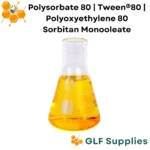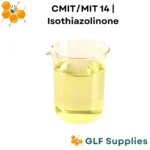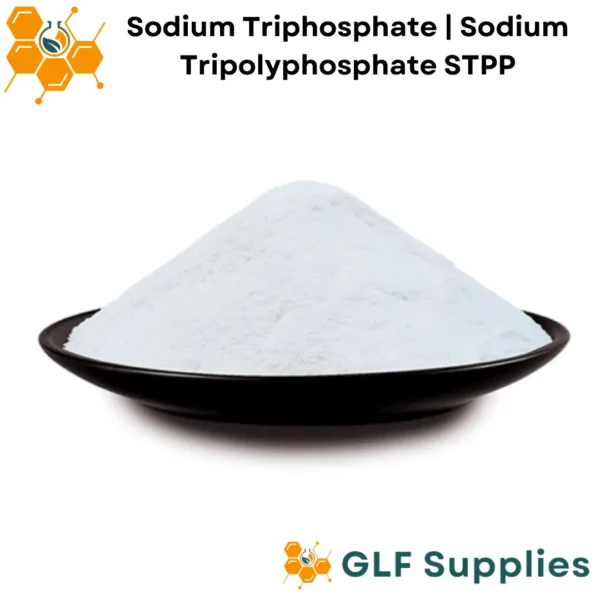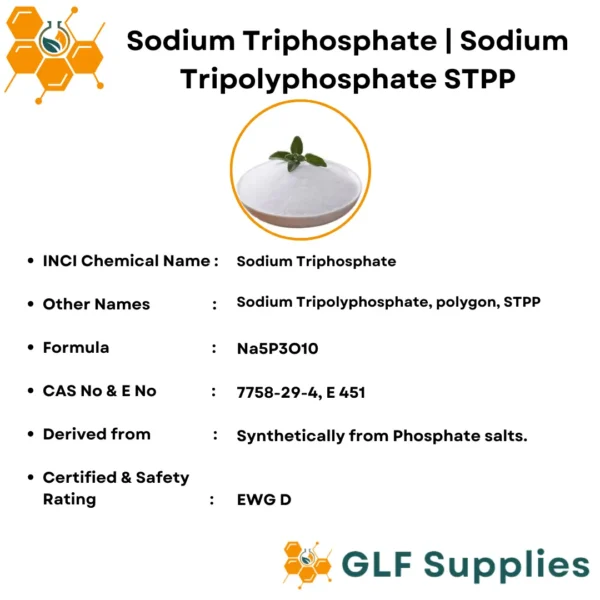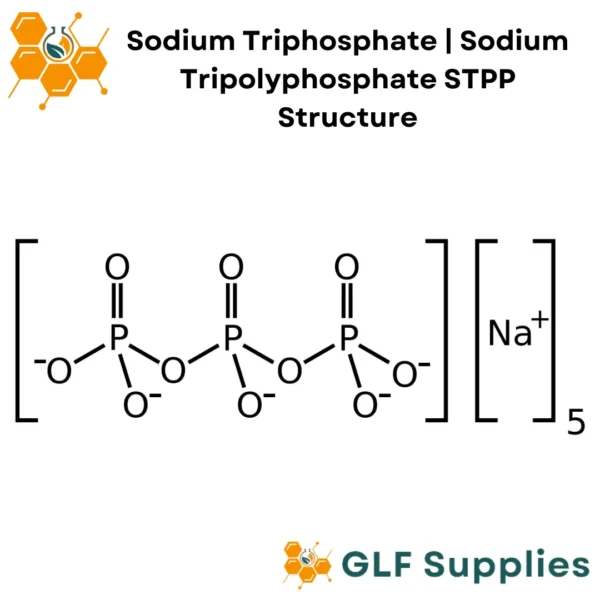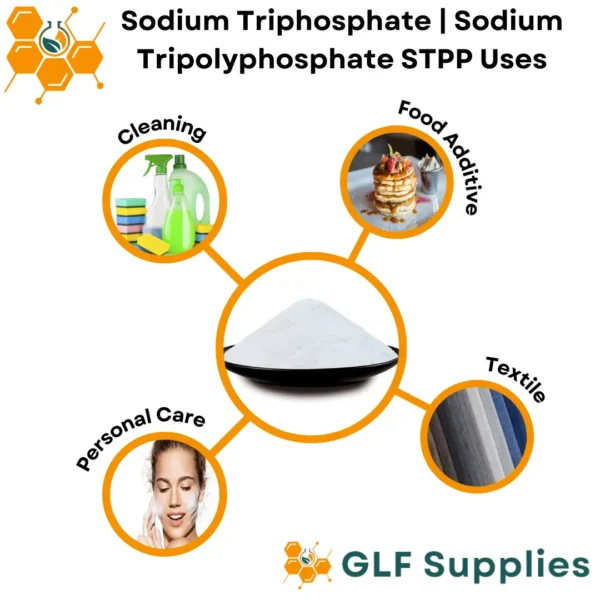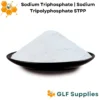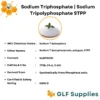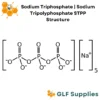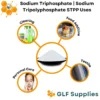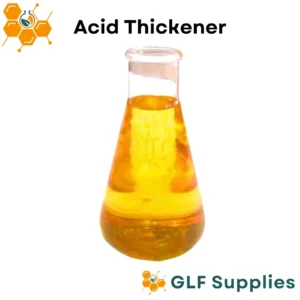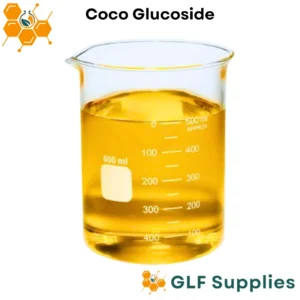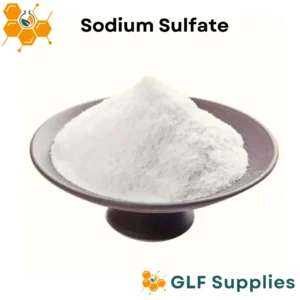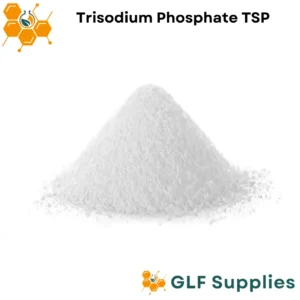Description
Introduction
Sodium Triphosphate | Sodium Tripolyphosphate STPP is an inorganic compound with the chemical formula Na5P3O10. It is a white, crystalline powder with a variety of industrial and household applications. STPP is derived from the reaction of phosphoric acid with sodium carbonate and is widely used for its multifunctional properties.
IUPAC Name :
Pentasodium Triphosphate
INCI Chemical Name :
Sodium Triphosphate
Other Names :
Sodium Tripolyphosphate, polygon, STPP
Formula :
Na5P3O10
CAS No:
7758-29-4
E Number:
E451
Derived from :
Synthetically from Phosphate salts.
Solubility :
Soluble in water (148 g/l at 25° C).
Uses
Sodium Triphosphate | Sodium Tripolyphosphate STPP has a wide range of applications in various industries:
Detergent and Cleaning Products:
STPP is a key ingredient in laundry detergents and household cleaners, functioning as a water softener and a builder that enhances the cleaning power of detergents.The majority of STPP is consumed as a component of commercial detergents. It serves as a builder. In hard water (water that contains high concentrations of Mg2+ and Ca2+), detergents are deactivated. Being a highly charged chelating agent, STPP binds to dications tightly and prevents them from interfering with the sulfonate detergent.
Food Industry:
It is used in the food industry as a preservative, emulsifier, and texturizer in processed meats, seafood, and other food products. The United States Food and Drug Administration lists STPP as Generally recognized as safe.
Water Treatment:
STPP is used in water treatment processes to prevent scale buildup in pipes and boilers.
Industrial Cleaning:
It is used in industrial cleaning formulations, such as degreasers and metal cleaners, due to its ability to break down grease and oil.
Ceramics and Porcelain:
STPP is utilized in ceramics and porcelain manufacturing to improve clay properties, enhance glaze adhesion, and increase product density.
Textiles:
It is used in the textile industry to improve dye penetration and color fastness in fabric dyeing processes.
Paint and Coatings:
STPP is added to paint and coatings formulations to improve pigment dispersion and enhance the viscosity of the product.
Precautions
While Sodium Triphosphate (STPP) is widely used, its excessive use in detergents and cleaning products has raised concerns about its environmental impact, particularly its contribution to eutrophication in water bodies. As a result, some regions have restricted its use in household cleaning products. It is important to follow recommended usage levels and consider eco-friendly alternatives when formulating products.
In summary, Sodium Triphosphate (STPP) remains a versatile compound with a long history of applications in detergents, cleaning, food, and various industries. While its usage has evolved due to environmental considerations, its multifunctional properties continue to play a role in enhancing product performance and efficacy in diverse applications.

